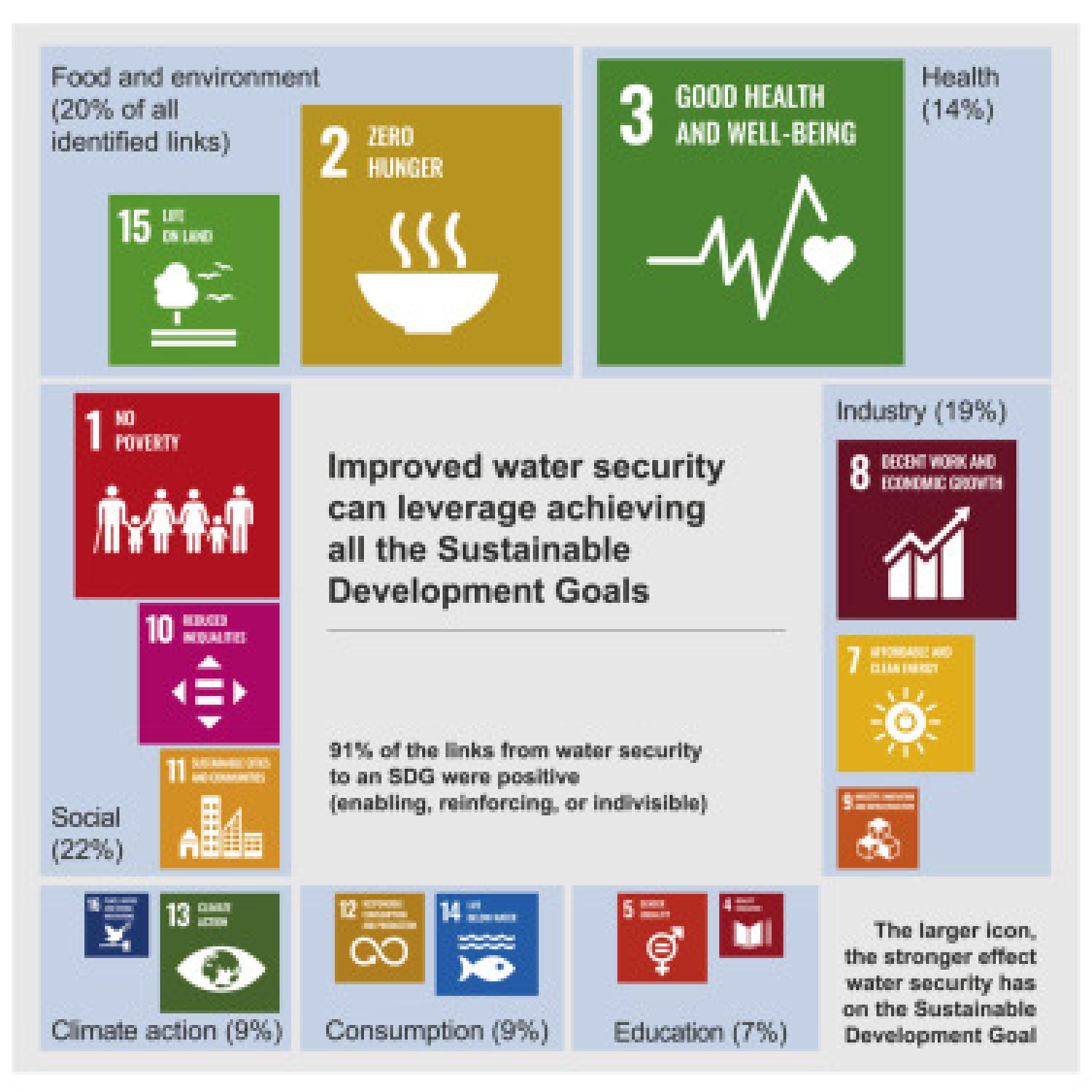
Understanding interlinkages among UN's Sustainable Development Goals (SDGs) is pivotal for the success of Agenda 2030. Here, we use water, a key sustainability resource, to advance SDG science by (1) assessing the synergies and trade-offs of improved water security on achieving the SDGs, (2) examining all the SDGs simultaneously, and (3) using a statistical analysis approach to synthesize the main interconnections. Our results show that water security positively contributed to all SDGs, especially SDG3 (good health) and SDG2 (zero hunger). Negative linkages (9% of all identified linkages) were potentially underrepresented and hampered critical assessment of water's links to the SDGs. The method may be used for other natural resources and their potential in supporting SDG implementation. Finally, more attention must be paid to the potential mutual benefits, and particularly the trade-offs, associated with SDG linkages. The UN Sustainable Development Goals (SDGs) are an ensemble of 17 overarching goals ranging from human health to protecting aquatic life. Understanding their interlinkages is pivotal for achieving sustainable development, which is hindered by studies focusing only on few goals. We use water, a key resource, to advance knowledge of the synergies and trade-offs. We examine how improved water security affects the success of other SDGs, when all the goals are examined simultaneously. Our statistical analysis approach shows that water security positively contributed to all the SDGs, especially good health and zero hunger. Only 9% of the linkages in the literature were negative, indicating that they possibly are underrepresented or the positive ones are overrepresented. The method is also suitable for other natural resources to identify their potential in sustainability. For sustainability attempts, more attention should be paid to mutual benefits and especially to the trade-offs among SDGs. We provide a statistical assessment of the interlinkages among SDGs by examining how improved water security contributes to all SDGs. This comprehensive assessment is pivotal in supporting integrated SDG implementation. Improved water security had a positive effect to at least one SDG in 91% of the publications. Our approach is suitable for other resources to identify their interconnections and correlations with direction of the relationship for achieving sustainable development.
